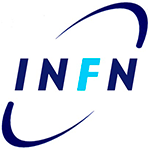Dr Francesco Albarelli
Spectroscopy of quantum emitters from the point of view of quantum metrology
Spectroscopy of a single quantum emitter (e.g. atom, molecule) using pulses of quantized radiation can be regarded as a fundamental problem in quantum science. Abstractly, it can be seen as the task of learning information about the emitter parameters by measuring traveling quantum probes that interact with it. We present recent work that initiates a quantum informationtheoretic approach to quantum light spectroscopy, based on quantum estimation theory. First, we consider the paradigmatic example of estimating the dipole moment of a two-level atom [1]. In the simplest case of single-photon pulses we are able to observe from a unified perspective the interplay between the information gained from photon absorption by the atom, as measured in absorption spectroscopy, and the perturbation to the temporal mode due to spontaneous emission, akin to fluorescence-based approaches. Going beyond the single-photon regime, we show that the limit of short pulses can be understood using a simple approximate model. Second, we briefly discuss the role of entanglement in biphoton probes, also for more general quantum emitters and parameters [2]. Finally, we report on ongoing progress towards obtaining a general methodology based on tensor networks methods, able to analyze more challenging scenarios, in which additional sources of noise affect the quantum emitter. We draw connections and potential applications to quantum sensing with continuous measurements and collisional quantum metrology. We illustrate the power of this general framework with the simplest example of resonance fluorescence of a two-level system and evaluate the quantum Fisher information of the portion of the emission field that can be detected, e.g. in a free-space geometry. [1] F. Albarelli, E. Bisketzi, A. Khan, and A. Datta, Phys. Rev. A 107, 062601 (2023) [2] A. Khan, F. Albarelli, and A. Datta, Quantum Sci. Technol. 9 035004 (2024)





